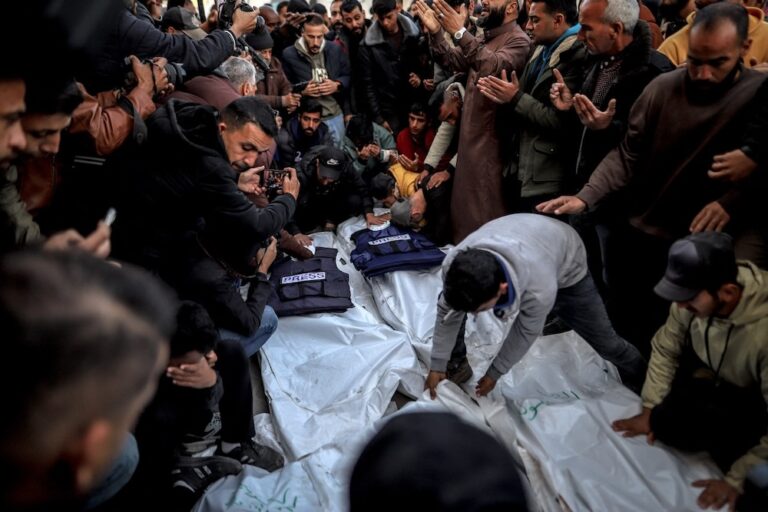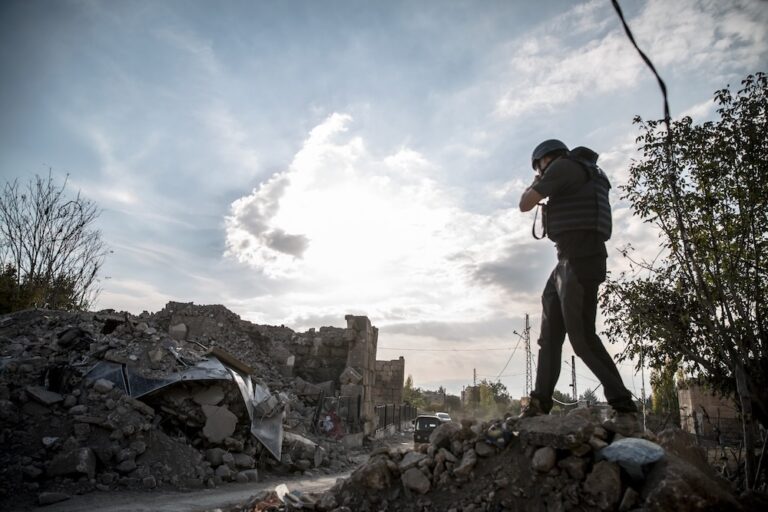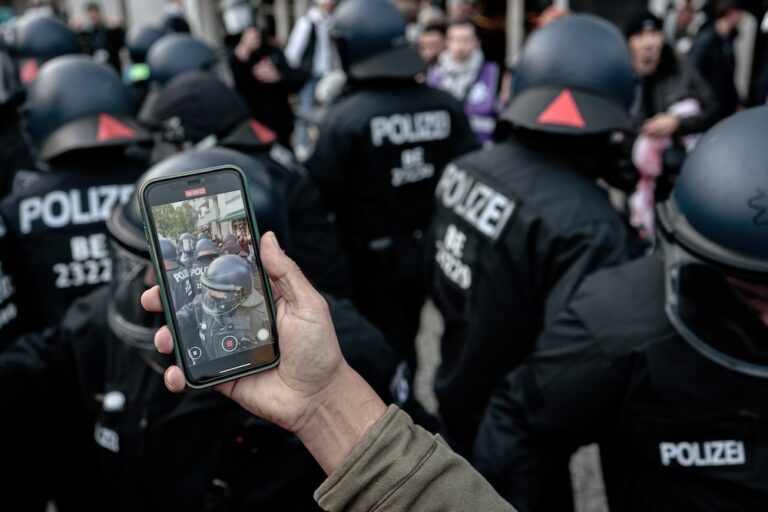(CPJ/IFEX) – On 16 February 1997, the Governmental Press Office (GPO) informed the English-language bi-monthly magazine “Challenge” and its sister publication, the bi-weekly Arabic-language magazine “Al-Sabar”, that their request for seven press cards for staff reporters, filed in December 1996, was denied. Among the reasons cited by the GPO for its decision was the fact […]
(CPJ/IFEX) – On 16 February 1997, the Governmental Press Office
(GPO) informed the English-language bi-monthly magazine
“Challenge” and its sister publication, the bi-weekly
Arabic-language magazine “Al-Sabar”, that their request for seven
press cards for staff reporters, filed in December 1996, was
denied. Among the reasons cited by the GPO for its decision was
the fact that some of the journalists who had applied for the
documents had been convicted in 1989 of membership in a hostile
organization – the Democratic Front for the Liberation of
Palestine – and that they oppose the Israeli-Palestinian peace
process outlined in the Oslo accords. The GPO also noted state
security concerns for denying the accreditation. “Challenge” has
since reported that the GPO’s decision to deny press cards to the
journalists came as the result of a directive from Israel’s
General Security Services (GSS), according to comments made by
GPO head Moshe Fogel.
Officials from “Challenge” claim that, since Palestinian
self-rule was instituted in 1994, none of their journalists has
been permitted to enter the Gaza Strip because they lacked
government press credentials.
In an unrelated development, Israeli Defense Forces (IDF)
prevented a Palestinian journalist from entering a Jewish enclave
in the town of Hebron. On 19 September, Nasser Shiyoukhi, a
reporter for the Associated Press (AP) news agency, was told by
an IDF soldier that he could not enter the area because he is an
Arab. According to AP, the soldier told two of Shiyoukhi’s
colleagues, who were travelling with him at the time, that the
three journalists could not park their car in an area near the
enclave “because you’ve got an Arab in the car.” After Shiyoukhi
attempted to show the soldier his press card and explain that he
was a journalist, the soldier punched him in the head, knocking
him to the ground. Shiyoukhi later filed a complaint with the
police, at the behest of Israeli border guards who had witnessed
the incident. Thus far, he has received no word on the progress
of his complaint.
Recommended Action
Send appeals to authorities:
flagrant violations of Article 19 of the Universal Declaration on
Human Rights and Article 19 of the International Covenant on
Civil and Political Rights (ICCPR), to which Israel is a state
party (The ICCPR guarantees journalists the “freedom to seek,
receive and impart information and ideas of all kinds, regardless
of frontiers”)
journalists to obtain access to areas in the West Bank and Gaza
Strip under the control of the Palestinian Authority (PA)
GPO to grant government press cards to journalists from
“Challenge” and “Al-Sabar”
within the IDF and the Justice Ministry to initiate an immediate
and vigorous investigation into the assault and harassment of
Nasser Shiyoukhi and make its findings public
Appeals To
His Excellency Prime Minister Benjamin Netanyahu
Office of the Prime Minister
3 Kaplan Street
Hakirya
Jerusalem 91007, Israel
Fax: +972 2 664 838 / 697 7839 / 3 691 7915Director
Government Press Office
Fax: +972 2 244 448 / 233 386David Valilan
Government press spokesman
Jerusalem, Israel
Fax: +972 2 664 838Copies to:
the Israeli diplomatic representative to your country
Israeli Television
Fax: +972 2 301 452
Please copy appeals to the source if possible.


